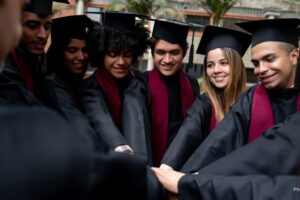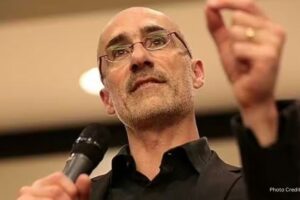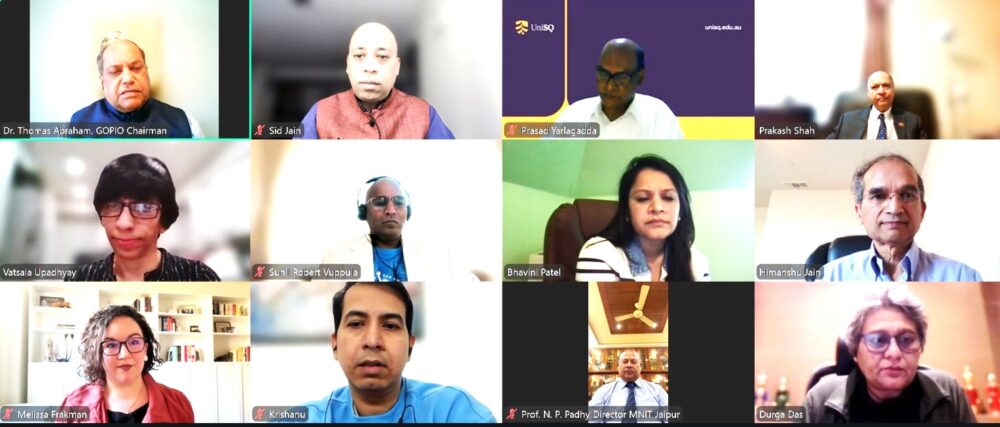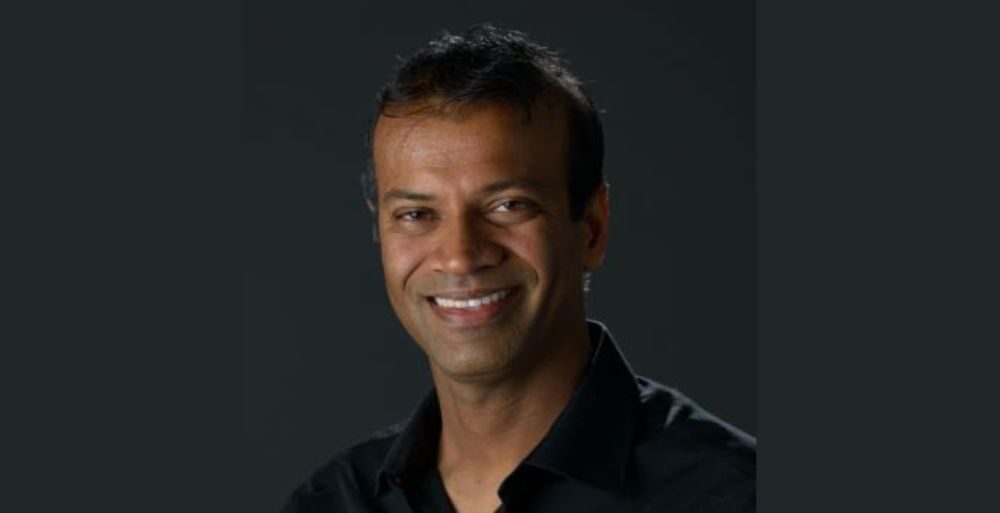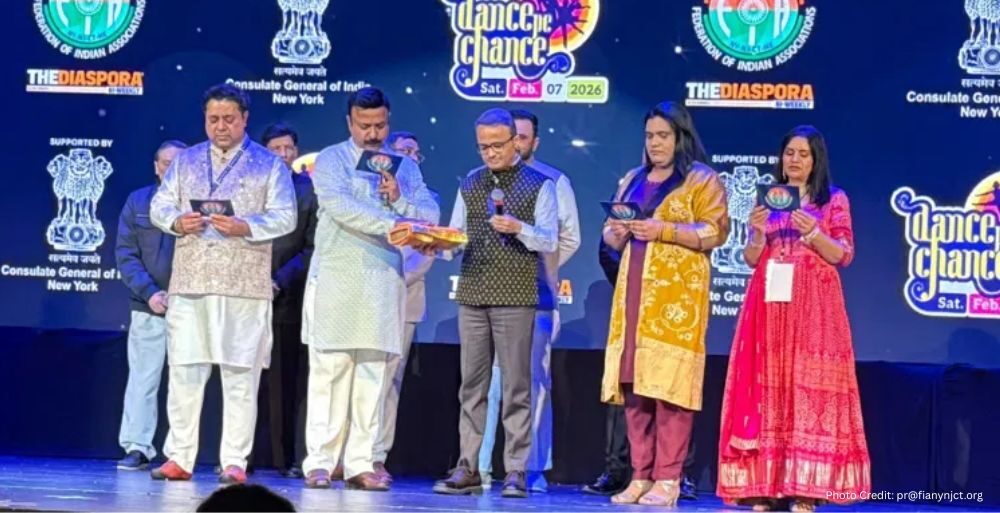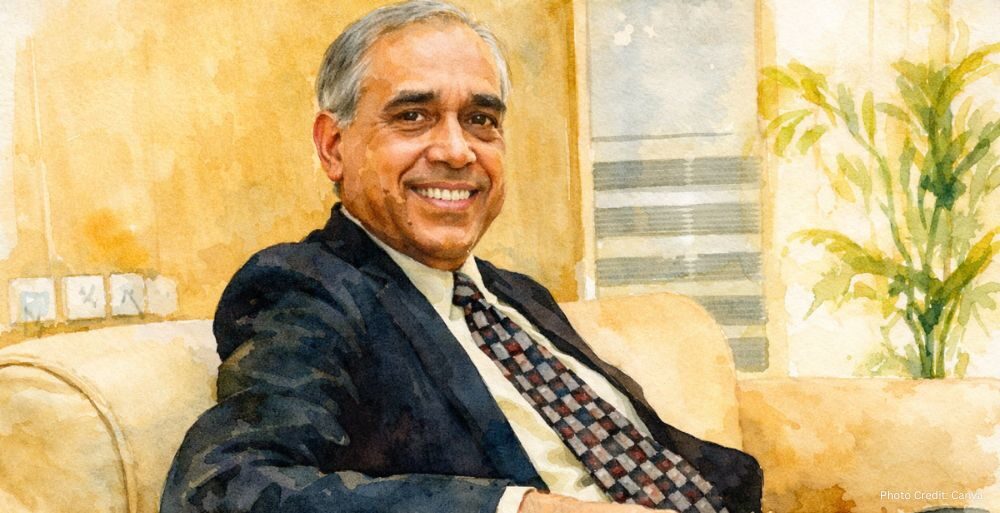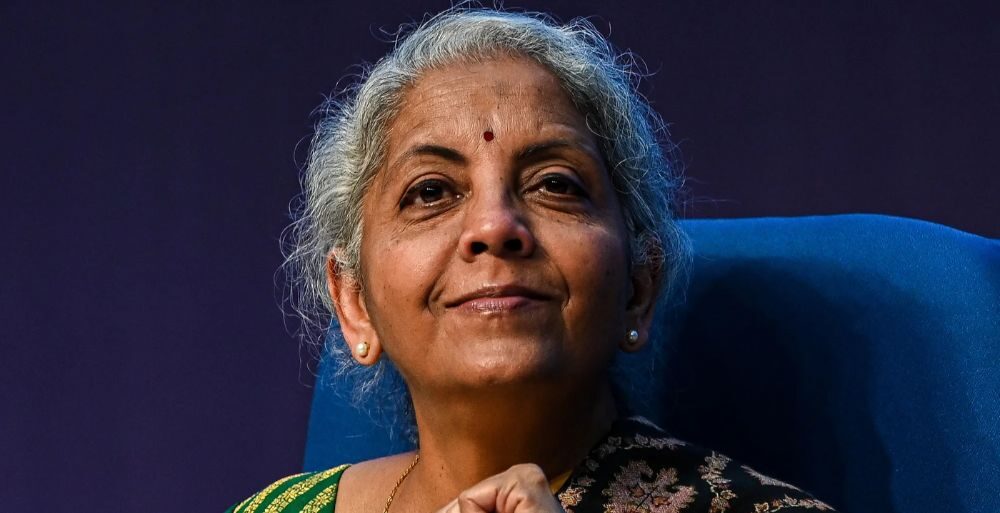The Global Organization of People of Indian Origin (GOPIO) amplified the voice and vision of Indian-origin scientists, inventors, and entrepreneurs in its landmark November 2025 webinar, themed “Shaping Technologies for the Future – Role of Diaspora.” Bringing together top thinkers in topics like artificial intelligence, nanoscience, critical materials, space technology, and sustainable water solutions, the event illustrated the prominent influence of the Indian diaspora in shaping the future of global innovation.
The session commenced with remarks by Prakash Shah, President of GOPIO International, who reflected on how decades of migration powered by expertise in STEM fields have bolstered India’s impact worldwide. “The movement of Indian professionals into science, engineering, technology, and math has been the driving force in every stage of Indian migration over the past six decades, fertilizing Silicon Valley and technology hubs across continents,” Shah emphasized. He recalled the turning point when critics of migration were silenced, asserting, “Better brain drain than the brain in the drain.” Shah credited the diaspora for major advances across all technology sectors in recent history.

Dr. Thomas Abraham, the founder and chairman of GOPIO, provided historical context, outlining the organization’s 36-year journey since 1989 in connecting global Indian professionals. “GOPIO has always focused on integrating the diaspora with their home country,” Abraham noted. “We are now moving beyond public engagement to focus on technology and innovation, building productive collaborations between diaspora professionals and Indian counterparts.” He revealed strategic goals to network experts in advanced computing, AI, nanotechnology, critical minerals, and the clean energy space to reinforce India’s innovation ecosystem.
Chairing the webinar series, Sunil Vuppala explained the forum’s mission to connect the intellectual resources of Indians abroad with India’s growth story. “Every monthly discussion showcases voices shaping the global Indian identity through their creative and technological contributions,” he said. Vuppala praised the panelists for blending knowledge with entrepreneurial drive, reflecting the diaspora’s cohesive focus on advancement, collaboration, and giving back.
Special guests included Dr. N.P. Padhy, Director of Malaviya National Institute of Technology (MNIT), Jaipur, and Dr. Anupam Shukla, Director of Sardar Vallabhbhai National Institute of Technology (SVNIT), Surat. Dr. Padhy highlighted how international collaboration can speed India’s rise as a technology frontrunner in areas such as clean energy, space research, and digital transformation. “India’s growth now means leading the global technology race—joining forces with the diaspora helps us get there faster,” Padhy remarked, urging for interdisciplinary research spanning AI, materials, and sustainable engineering.
Moderating from Australia, Prof. Prasad Yarlagadda, Dean of Science, Engineering and Digital Technologies at Southern Queensland University, drew from his four-decade legacy in advanced manufacturing and nanotechnology innovation. He predicted major changes in education, with universities serving primarily as facilitators by 2035. Prof. Yarlagadda discussed his international collaborations with IISc Bengaluru and IIT Madras in energy materials and antibacterial nanotechnology.
Glass science trailblazer Dr. Himanshu Jain, Distinguished Chair at Lehigh University and visiting professor at University of California, Davis, demonstrated how advanced glass technology is spurring new solutions for sustainability, energy efficiency, and healthcare. Jain outlined developments such as solar glass mirrors, energy-saving architectural glazing, and novel glass for wind turbines, emphasizing the move from electronics to photonics and even using glass as controlled-release fertilizer for agriculture.
Dr. D.R. Nagaraj, Professor of Professional Practice at Columbia University’s Department of Earth and Environmental Engineering, presented on the urgent need for eco-friendly extraction of critical minerals, the backbone of civilization. Nagaraj pointed out that 54 key elements like lithium, cobalt, and rare earths are essential for supply chains that support everything from clean energy to digital infrastructure. He stressed deploying AI, robotics, and analytics in mining to ensure sustainable, precise resource extraction.
Bhavini Patel, Executive Director of Sustainable Pittsburgh, spotlighted the human side of technology. “Technology is powered by people—who creates it, who uses it, and who benefits matters most,” she said. Patel called for stronger representation and collaboration among women in technical and public policy fields, framing the diaspora’s narrative as one of inclusive innovation for future generations.
Melissa Frakman, CEO and Founding Partner of EMVC, focused on the booming Indian fintech scene, fueled by diaspora mentorship, cross-border networks, and an understanding of both global and Indian contexts. She stressed that beyond financial backing, startups need access to global expertise and networks provided by diaspora investors to truly thrive.
Tech entrepreneur Krishanu Acharya, CEO of Suhora Technologies, shared how his company’s AI-powered satellite analytics are revolutionizing national security, mining oversight, and disaster resilience. “Our India-centric, export-ready platform combines AI with remote sensing to safeguard vital assets,” he said, noting AI’s role as a supplement to human oversight rather than a replacement.
Dr. Durga Das, founder of AiroWater, showcased innovative atmospheric water generators that turn air into clean water, already tackling water crises in cities like Chennai and Cape Town. “The atmosphere holds seven times more water than the ground,” Das explained. “Harnessing this resource is a sustainable, high-impact solution.”
The webinar concluded with calls for expanding global collaboration through specialized technology councils and cross-sector diaspora networks to keep innovation in sync with India’s national priorities. With AI, space, critical minerals, and sustainable resources at the forefront, GOPIO aims to strengthen its role as a bridge between the diaspora and India’s drive for global technological leadership.
The event closed with a formal vote of thanks from GOPIO Secretary Siddarth Jain and a nod to the essential technical support provided by Associate Secretary Vatsala Upadhyay.

